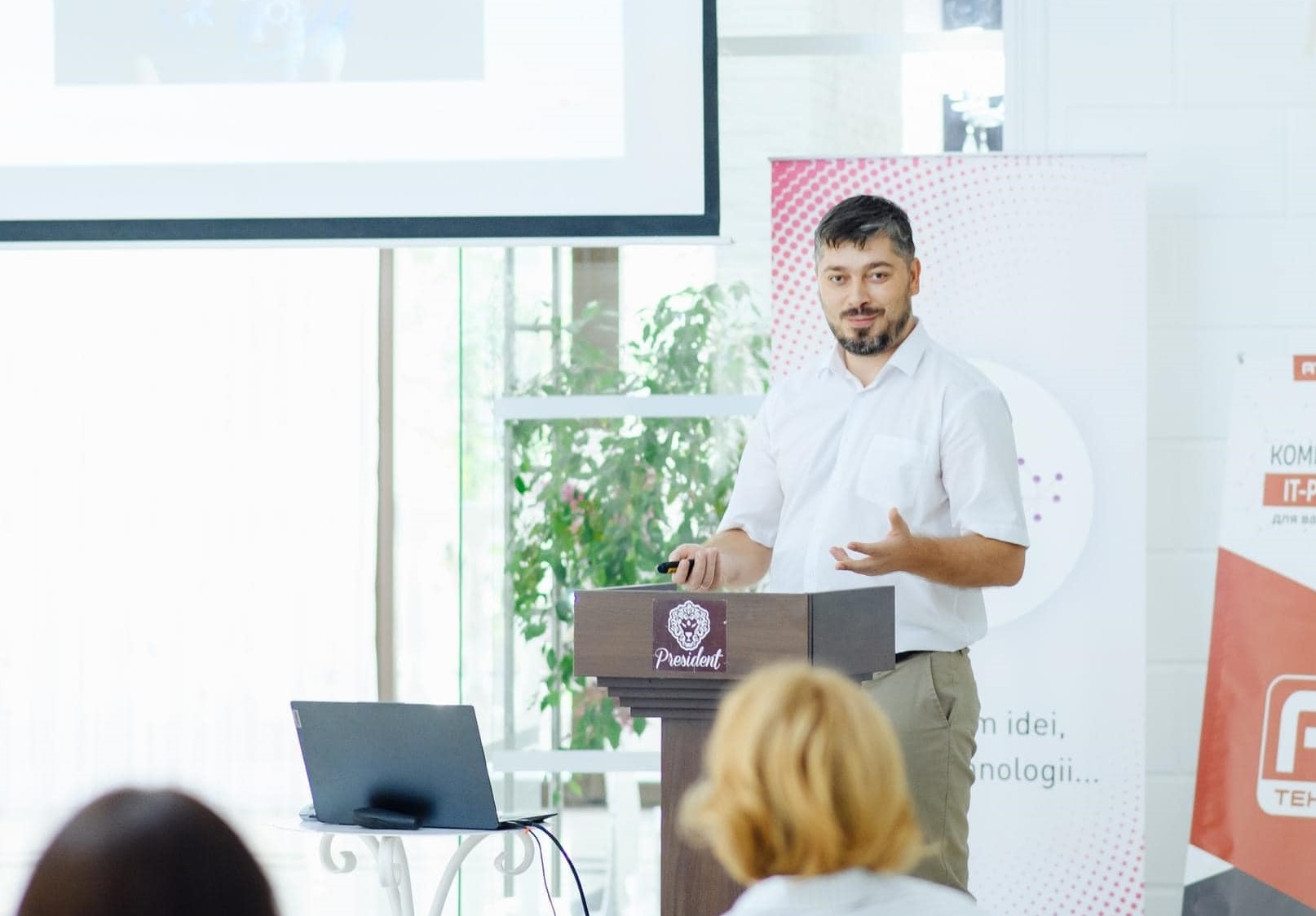In the words of Sergiu Chilat, university lecturer: ‘I am there to discover talents and give them a chance to work in IT’
Date:
Sergiu Chilat is a lecturer in the Department of Mathematics and Computer Science at the Alecu Russo State University of Bălți. In addition to teaching, Chilat manages the company Power IT and is the co-founder of the Association for the Development of Electronic Communications and Innovative Technologies (ACETI). His efforts focus on promoting the involvement of girls and women in information technology (IT) and combating stereotypes that girls cannot work in IT as successfully as boys.

Photo credit: Courtesy of Sergiu Chilat
”When I graduated from the State University of Bălți, specialising in Mathematics and Computer Science, IT was not developed at all in the northern part of the country, including Bălți. At the time, I had been working for seven years as a freelance programmer. When I received the proposal to work as a university lecturer at the Department of Mathematics and Computer Science, I accepted the offer for a period of one year. Fifteen years have passed since then, and I am still there.
While carrying out these activities, I like to interact the most with young people who show interest, get involved, ask questions, challenge me and take me out of my comfort zone to find new solutions to different situations. I work as a university lecturer for pleasure. On the other hand, I am there to discover talents and give them a chance to work in IT.
Unfortunately, girls rarely choose to study IT; instead, they often choose Mathematics and Computer Science because it is a field that helps form young teachers. We have an even smaller number of girls in the Programming department. However, girls succeed in all IT specialisations. The assumption that girls are only suitable for IT testing or design is wrong; we have examples of young women carrying out complex programming activities.
As a university lecturer, I don't differentiate between boys and girls; I treat everyone equally, and I try to motivate girls to discover their potential. As the co-founder of ACETI, I also help carry out our "IT Weekends," which feature activities that encourage young women studying in schools, gymnasiums and high schools to choose careers in IT. The ability of girls and women to successfully access STEM is also directly determined by the awareness and support they receive from their teachers and family.
Along with my work at the university, I decided to form a team to work on an IT project in 2014. Back then we were only four people, but in time we expanded and the company that I now manage, currently has around 50 employees. Over 90 per cent of our current team is made up of my former or current students. I usually notice students in my classes who are doing well and suggest them to enroll in our internship programme. For four to seven months, they are guided by a mentor and have the opportunity to develop professionally and decide which IT field they want to pursue for work. The subjects I teach at the university also intersect a lot with the technologies that the company uses. Most of the time, people who do well in classes also perform well at work.
I can say with certainty that there is no difference between a girl/woman and a boy/man in terms of professionalism and productivity. Very often, boys are involved more superficially in certain tasks, while girls are more responsible and perfectionist, leave no room for interpretation, work harder and come up with better results.
The IT field has the highest prospects, and it offers the best salaries and working conditions. Another advantage is that many IT employees can work part-time or from home, which allows young mothers to have a lot of flexibility and develop professionally while taking childcare leave.
I believe that all IT companies should carry out information activities on getting girls and women involved in this field in order to solve the problem of gender equality among employees. At the same time, state institutions play an important role in promoting IT and encouraging girls and women to pursue a career in this field.”